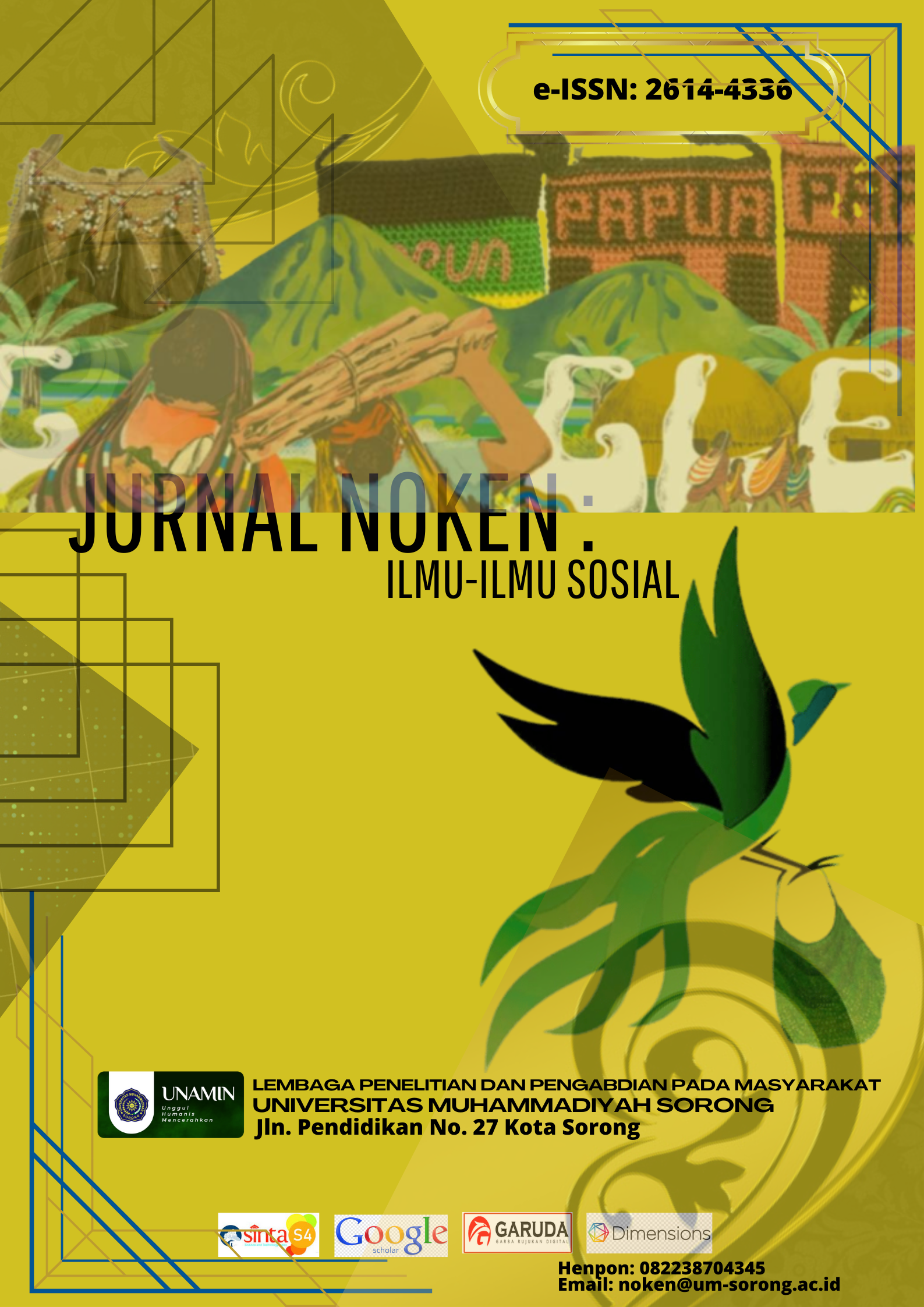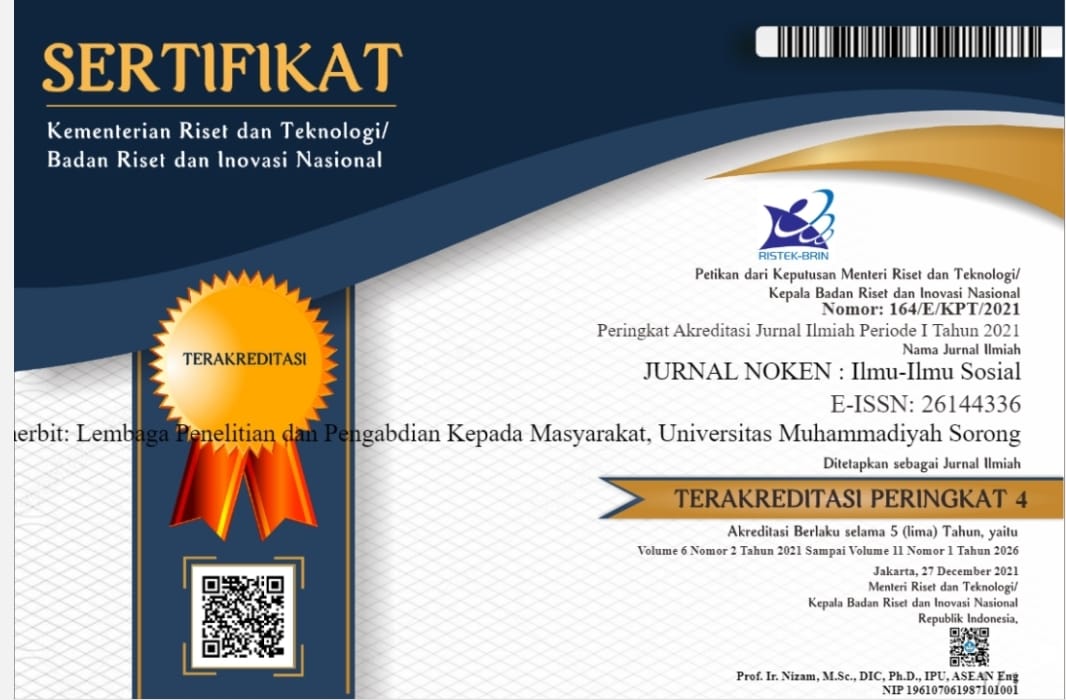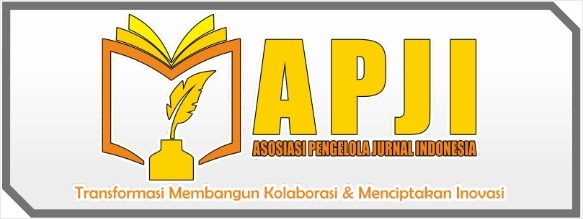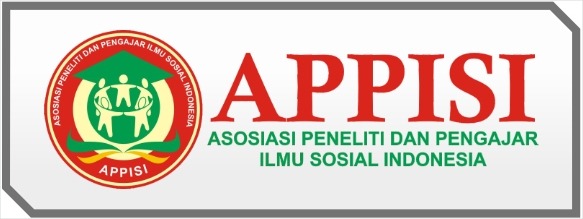Collaborative Digital Transformation Pemerintah Provinsi Jawa Barat
DOI:
https://doi.org/10.33506/jn.v7i2.1784Keywords:
Pemerintah Digital, Kolaborasi Pentahelix, Pemerintah Lokal, Kebijakan PublikAbstract
This article is intended to contribute as an additional new reference for academics and practitioners in the field of government science and to introduce the concept of developing digital government transformation that focuses on collaboration in Indonesian local governments. This article uses case studies and a limited literature review to explore how collaboration can play an important role in the implementation of digital transformation in the West Java Digital Service (JDS), or the Regional Technical Implementation Unit of the Center for Digital Services, Geospatial Data and Information under the West Java Provincial Communication and Information Office. As a digital-based local government agency, Indonesia has the goal of being an accelerator of achieving government targets to break the digital divide for remote communities, improve the efficiency and accuracy of data and technology-based community data policies, support services and community policy making that are responsive, adaptive, and innovative. This article provides an overview of how Indonesian local governments deliver digital-based policies through joint decision-making or collaborative governance, seeking to share decision-making power with stakeholders to develop joint recommendations for effective and lasting solutions to public problems.
References
Andhika, L.R., 2017. Perbandingan Konsep Tata Kelola Pemerintah: Sound Governance, Dynamic Governance, dan Open Government, Jurnal Ekonomi & Kebijakan Publik, Vol. 8, No. 2, December 2017, hal. 87–102
Ansell Christ and Gash Alison, 2008, Collaborative Governance in Theory and Practice, Journal of Public Administration Research and Theory: J-PART, Vol. 18, No. pp. 543-571
Badan Keahlian DPR RI. 2021. Politik dan Keamanan Budget Issue Brief Vol 01, Ed 1, February 2021.
Becker, J., Niehaves, B., Bergener, P., Räckers, M. 2008. Digital Divide in eGovernment: The eInclusion Gap Model. In: M.A. Wimmer, H.J. Scholl, and E. Ferro (Eds.): EGOV 2008, LNCS 5184, pp. 231–242. Springer-Verlag, Heidelberg.
Chen, H. 2002. Digital Government: Technologies and Practices. Decision Support Systems, 34, 223-227.
Denhardt, R.B.; Denhardt, J.V., 2007; The New Public Service: Serving, Not Steering; Armonk, New York/London, England; M.E. Sharpe
Dennis Anderson, Robert Wu, June-Suh Cho, Katja Schroeder. 2015. E-Government Strategy, ICT and Innovation for Citizen Engagement. Springer: New York Pg. 14-15
Emerson K. and Nabatchi T. 2015. Collaborative Governance Regimes. Washington DC: Georgetown University Press.
Emerson K., Nabatchi T. and Balogh S. 2012. An Integrative Framework for Collaborative Governance. Journal of Public Administration Research and Theory 22(1): 1–29.
European Commission. 2019. “The Digital Economy and Society Index (DESI)”
Eom, Seok Jin, and Jun Houng Kim. 2014. “The Adoption of Public Smartphone Applications in Korea: Empirical Analysis on Maturity Level and Influential Factors.” Government Information Quarterly 31(SUPPL.1). http://dx.doi.org/10.1016/j.giq.2014.01.005.
Ferro, E., Gil-Garcia, J.R., Helbig, N. 2007. The Digital Divide Metaphor: Understanding Paths to IT Literacy. In: Wimmer, M.A., Scholl, J., Grönlund, Å. (eds.) EGOV. LNCS, vol. 4656, pp. 265–280. Springer-Verlag, Heidelberg
Gray B. 2004. Strong Opposition: Frame-based Resistance to Collaboration. Journal of Community & Applied Social Psychology. 14: 166–176.
Grönlund, A., Andersson, A., dan Hedström, K. 2005. NextStep E-Government in Developing Countries. Sweden: Örebro University
Heather Getha-Taylor, Misty J. Grayer, Robin J. Kempf, and Rosemary O’Leary 2019. Collaborating in the Absence of Trust? What Collaborative Governance Theory and Practice Can Learn From the Literatures of Conflict Resolution, Psychology, and Law. American Review of Public Administration. 2019, Vol. 49(1) 51–64. SAGE.
Heeks, R. 2003. Most eGovernment-for- Development Project Fail: How Can Risks be Reduced? (No. 14). Manchester: Institute for Development Policy and Management
Helsper, Ellen. 2008. Digital inclusion: an analysis of social disadvantage and the information society. Department for Communities and Local Government, London, UK. ISBN 9781409806141.
Innes dan Booher, 2003, Collaborative policymaking: Governance through dialogue. In Deliberative policy analysis: Understanding governance in the network society, ed. M.A. Hajer and H. Wagenaar, 33–59. Cambridge: Cambridge Univ. Press
Katadata., 2019. Indeks Inovasi indonesia Peringkat Kedua Terbawah di ASEAN. Diakses pada 29 July 2020
Katadata., 2019. Indonesia Targetkan Jadi Negara Maju pada 2045, Berapa PDB per Kapitanya? Diakses pada 29 July 2020
Katadata., 2020. Pandemi Covid-19 Pacu UMKM Gunakan Media Digital. Diakses pada 29 July 2020
Keeping America Informed. 2012. The U.S. Government Printing Office, Washington DC
Kumar, R., dan Best, M. L. 2006. Impact and Sustainability of E-Government Services in Developing Countries: Lessons Learned from Tamil Nadu, India. The Information Society, 22(1), 1-12.
Kumar, et al., 2007, “Factors for successful e-government adoption: a conceptual framework”, The Electronic Journal of e-Government, Vol. 5, Issue 1, pp. 133–122
Lathrop, Daniel dan Ruma, Laurel. 2010. Open Government: Collaboration, Transparency, and Participation in Practice, California: O’Reilly Media.
Maulana, R.Y. 2020. Collaborative governance in the implementation of e-government-based public services inclusion in Jambi Province, Indonesia. Journal of Governance, 5(1), 91–104. https://doi.org/10.31506/jog.v5i1.7317
Maulana, R.Y. 2020. Provision of Access to Information Services Based on E-Government in the Village Government. Proceedings of the Tarumanagara International Conference on the Applications of Social Sciences and Humanities (TICASH 2019). Atlantis Press. Advances in Social Science, Education and Humanities Research, volume 439. https://doi.org/10.2991/assehr.k.200515.037
Mayer, R.C., Davis, J. H., & Schoor, D.F. 1995. An Integrative Model of Organizational Trust. The Academy of Management Review, Vol. 20, No. 3, 709-734.
Meijer, A.J., Curtin, D. and Hillebrandt, M. 2012, “Open government: connecting vision and voice”, International Review of Administrative Sciences, Vol. 78 No. 1, pp. 10-29.
Meijer, A. 2014. From hero-innovators to distributed heroism: An in-depth analysis of the role of individuals in public sector innovation. Public Management Review, 16(2), 199–216 Nam, Taewoo & Pardo, Theresa. 2014. The changing face of a city government: A case study of Philly311. Government Information Quarterly. 31. 10.1016/j.giq.2014.01.002.
Niehaves, B., Becker, J. 2008. The Age-Divide in e-Government – Data, Interpretations, Theory Fragments. In: Oya, M., Uda, R., Yasunobu, C. (eds): IFIP International Federation for Information Processing, Volume 286, Towards Sustainable Society on Ubiquitous Networks, pp. 279–287. Springer-Verlag, Boston,
Niehaves, B., Gorbacheva, E., Plattfaut, R. 2013. The Digital Divide vs. the e-Government Divide: Do Socio-Demographic Variables (Still) Impact E-Government Use among Onliners? In: Gil-Garcia, J. Ramon (eds): e-Government Success Factors and Measures: Theories, Concepts, and Methodologies, pp. 52-65. IGI Global
Nurdin. 2012. Benchmarking Indonesian Local e-Government. PACIS Conference in Ho Chi Minh Vietnam, paper 61
OECD. 2016. Kajian Open Government Indonesia: Hal-Hal Pokok
O’Leary Rosemary, Beth Gazley, Michael McGuire, and Lisa Blomgern Bingham, 2008, Public Managers in Collaboration in The Collaborative Public Manager; New Ideas for the twenty-first century, ed Rosemary O’Leary and Lisa Blomgern Bingham, Washington DC; Georgetown University Press.
O’Leary Rosemary, David M Van Slyke ed Sohne Kim, 2010, The Future of Public Administration around the world, Washington DC; Georgetown University Press.
Osborne, S. (ed.), 2010. The New Public Governance; London & New York: Routledge
Ostrom E. 2007. Institutional Rational Choice: An Assessment of the Institutional Analysis and Development Framework. In Sabatier P. A. (ed.), Theories of the Policy Process. Boulder, CO: Westview Press, 21–64.
Oyekunle, R., Akanbi-Ademolake, H.B. 2016. An Overview of e-Government Technological Divide in Developing Countries.
Papadopoulou, P., Nikolaidou, M., & Martakos, D. 2010. What Is Trust in E-Government? A Proposed Typology. Proceedings of the 43rd Hawaii International Conference on System Science. Hawaii: IEEE Computer Society.
R.S. Morse and Stephens, John B. 2012. Teaching Collaborative Governance: Phases, Competencies, and Case-Based Learning, Journal of Public Affairs Education.
Rousseau, D.M., Sitkin, S.B., Burt, R.S., Camerer, C. 1998. Not so different after all: A cross-discipline view of trust. Academy of Management Review, 23, 393-404.
Sahraoui, S. 2007. e-Inclusion as a Further Stage of e-Government? Transforming Government People Process and Policy 1(1), pp. 44-58
Scholl, H.J. (2010) e-Government: Information, Technology and Transformation. In: H.J. Scholl (ed.) Electronic Government: A Study Domain Past its Infancy, pp. 11-32. Armonk, NY: M.E. Sharpe
Schwester, R., 2009. “Examining the Barrier to e-government Adoption”, Electronic Journal of e-Government, Vol. 7 Issue 1 2009 (113-122)
Seifert, J.W., dan Bonham, G. M. 2003. The Transformative Potential of E-Government in Transitional Democracies. Proceedings of The International Conference on Public Administration in the 21st Century: Concepts, Methods, Technologies, School of Public Administration, Lomonosov Moscow State University.
Setkab., 2020. Antisipasi Perubahan, Presiden Berikan 5 Arahan Soal Perencanaan Transformasi Digital. Diakses pada 29 July 2020
Setneg., 2020. Pidato Presiden RI pada Penyampaian Keterangan Pemerintah Atas RUU Tentang APBN TA 2021 Beserta Nota Keuangannya di Depan Rapat Paripurna DPR RI. Diakses pada 2 September.
Singh, S., Castelnovo, W.: e-Government: A Time for Critical Reflection and More? In: Singh, S., Castelnovo, W. (eds.). 2015. Leading issues in e-Government Research vol. 2., pp. vii-xv. Academic Conferences and Publishing International Limited Reading, United Kingdom Smith, M. (2010), Building institutional trust through e-government trustworthiness cues. Information Technology and People, 23(3), 222-246.
Stoker, G. 2004. Designing institutions for governance in complex environments: Normative rational choice and cultural institutional theories explored and contrasted. Economic and Social Research Council Fellowship, Paper No. 1.
Sutiyo, Sutiyo & Maharjan, Keshav. 2017. Decentralization and Rural Development in Indonesia. 10.1007/978-981-10-3208-0.
United Nations. 2006. Innovation in Public Governance: Replicating What Works
United Nations. 2016. e-Government Survey 2016: E-Government in Support of Sustainable Development. Department of Economic and Social Affairs UN, New York
Van de Ven, A. 1986. Central problems in the management of innovation. Management Science, 32, 590–607.
Wahid, Fathul. 2004. Lesson from e-Government Initiatives in Indonesia. Media Informatika: Vol. 2, No. 2, December 2004, 13-21.
World Bank. 2001. Issue Note: E-Government and the World Bank.
Yin, R.K. 2009. Case study research: Design and methods (4th ed.). Thousand Oaks: Sage.
Yunita, N.P., Aprianto, R.D., 2018. Kondisi Terkini Perkembangan Pelaksanaan E-Government Di Indonesia: Analisis Website. Seminar Nasional Teknologi Informasi dan Komunikasi 2018 (SENTIKA 2018) ISSN: 2089-9815 Yogyakarta, 23-24 March 2018.
Downloads
Published
How to Cite
Issue
Section
License
Copyright (c) 2022 Rio Yusri Maulana

This work is licensed under a Creative Commons Attribution-ShareAlike 4.0 International License.










